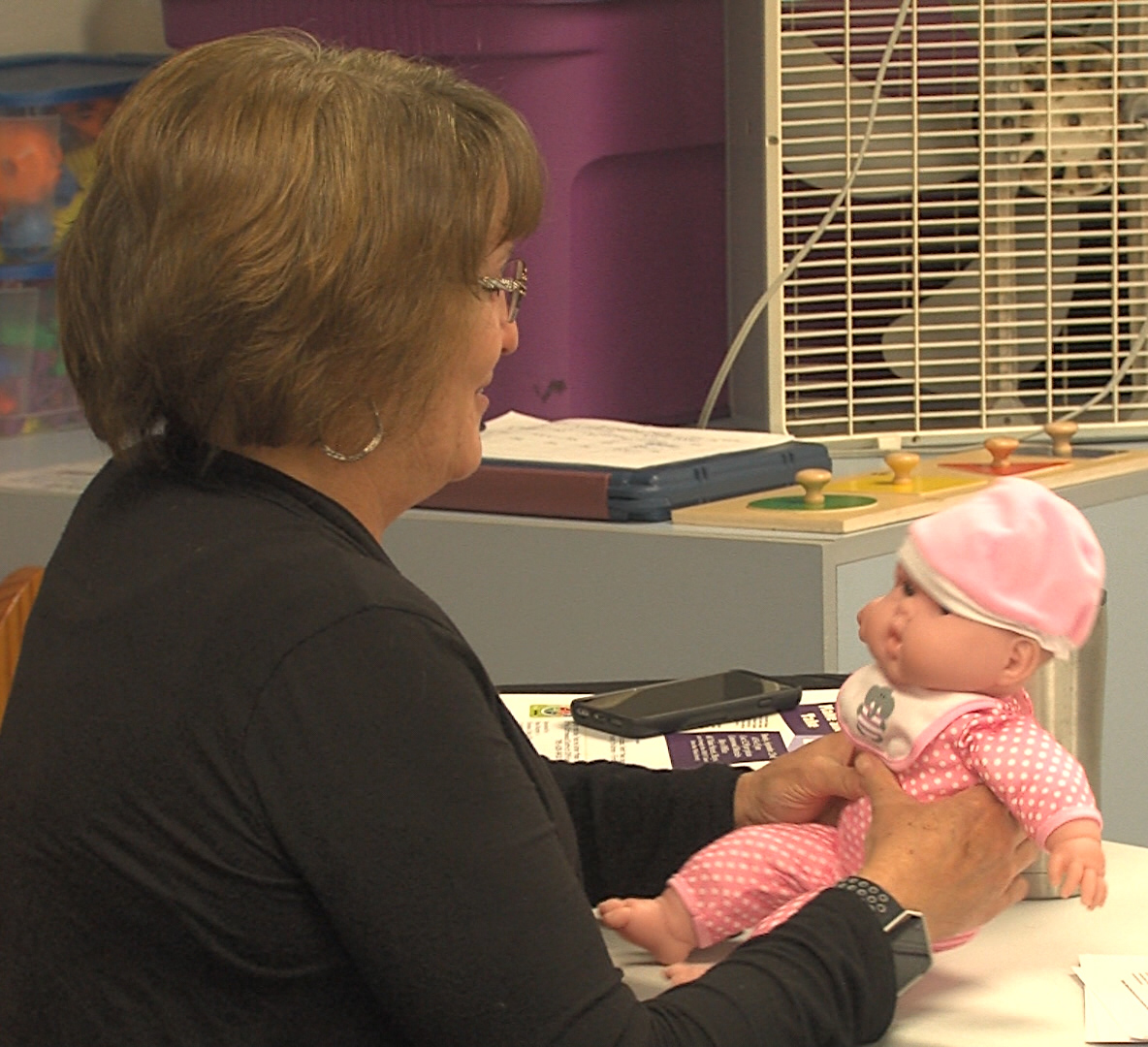
By BECKY KISER
Hays Post
For years, scientists have known that what happens – or doesn’t happen – during a baby’s first few years makes a big difference in a child’s later life, and babies who do not get enough love and attention in infancy are less likely to be well-adjusted adults.
“I think we all want our kids to be smart and happy,” says Dr. Bradford Wiles, K-State Research and Extension (KSRE), a Manhattan-based specialist in early childhood development. “We aren’t born with the innate ability to be good parents.”
“What we do in these parent education and parent educator classes is essentially teach how to make smart kids.”
Wiles was in Hays last week presenting seminars about the importance of early brain development. Friday he worked with parent educators in the Parent As Teachers program at USD 489 Early Childhood Connections. Parent Educators meet regularly with parents in their home.
“We remove the things that are barriers to kids’ learning and to their social/emotional development. We encourage the things – like play – that are known to facilitate cognitive, social/emotional and physical development.”
Also important to child development is consistency and routine, with wiggle room allowed.
“First, it helps children to know what to expect. For all of us, knowing what to expect is a tremendous benefit. It reduces anxiety. It helps us to plan.
“When children are in an inconsistent environment, they don’t know what to expect. So learning new things becomes a lot more difficult. They tend to be a lot more anxious. They’re unable to focus very well because they have no expectations that they know are going to be met.”
Adults can modify a routine as needed. Children should not be randomly changing their routine, according to Wiles.
“If a parent sets 7:00 p.m. as bedtime and they want to take the child along with them to visit friends and won’t be home until 8:30 p.m., that’s fine. That’s the adult’s choice.
“When it’s the child randomly staying up until 8:30 p.m., that becomes very chaotic and doesn’t provide the structure children need to be able to process and learn things.”
Wiles says most people don’t recognize how important development is from birth to age 5.
“Those foundational years are what set the stage for all learning and development.”
From the moment a baby is born, every experience taken in by the five senses helps strengthen the neural brain connections that guide development.
Talking to a baby face-to-face builds the brain connections needed for both language skills and a healthy emotional bond.
 “It would never occur to some parents to give baby a ‘play-by-play of what they’re doing, or use infant-directed speech in that really high-pitched voice… That’s what we’re after, to help people realize there’s simple things they can do that will make their kids smarter.”
“It would never occur to some parents to give baby a ‘play-by-play of what they’re doing, or use infant-directed speech in that really high-pitched voice… That’s what we’re after, to help people realize there’s simple things they can do that will make their kids smarter.”
Wiles says empathy and compassion are important when working with families and their children.
“Recognizing that all families have unique demands and needs, and tailoring what we can help them with to meet those needs is critical.”
Some parents are ready and able to implement more routines than other parents.
“We need to meet people where they are. Trying to implement everything all at once is going to be very difficult.”
With some parents, implementing micro-routines is a good way to start.
“Maybe it’s teeth brushing that needs the same routine morning and night. Maybe it’s book reading that’s the thing you start with by saying we’re going to do this at this time every other day. It’s a start.
“It’s really helping parents learn new skills and implement them at their own pace that will prove beneficial to the child.”
Wiles bases his presentations on “Better Brains for Babies,” developed by public and private agencies in Georgia. Created in 1998, the program is dedicated to promoting awareness and education about the importance of early brain development in the healthy growth and development of infants and young children
Additional resources are available in the KSRE book store in the Home and Family section.
